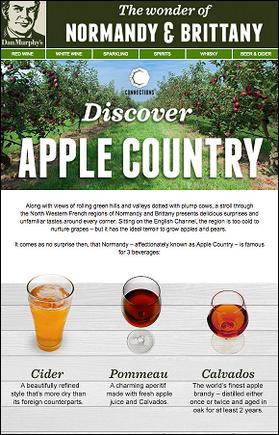The Four Steps for Effective Change in Marketing
- 26 May, 2016 09:54
A recent study by Forbes Insights, sponsored by Oracle Marketing Cloud, found that 60 per cent of marketing executives say their roles and responsibilities have changed significantly over the past two years due to the influx of new technologies, and the growing expectation from consumers around seamless and personalised messaging.
However, too much change at once isn’t easy. In fact, nearly half of the survey respondents (48 per cent) said that evolving brand and agency roles are actually making successful collaboration more difficult.
Nevertheless, marketing stakeholders must commit to fostering improved collaboration with their brand and agency counterparts, without losing focus on increasing sales, attracting and retaining customers, and enhancing brand awareness. So how can execs forge better relationships with brand or agency peers, while achieving all the other imperatives that define marketing success today?
The Forbes Insights/Oracle Marketing Cloud report recommends focus on these four key areas:
1. Mine and track all of today’s rich sources of data
Agency and brand stakeholders must challenge themselves to analyse and apply consumer data in more sophisticated ways. Some are even hiring data scientists and others outside of the traditional marketing discipline to help in these efforts.
One common roadblock among marketers today is a failure to gauge the effectiveness of programs due to unreported results. Noting important data and the attribution of data sources are essential for understanding the effectiveness of marketing campaigns and knowing which investments will deliver the best results.
Once you have good data tracking and analysis in place, the report recommends finding ways to share this data with your brand/agency counterparts to come up with a collaborative data-driven strategy that will lead to greater insights and longer lasting impacts with consumers
2. Capitalise on the latest technologies
The latest digital technologies are powering marketing efforts for agencies and marketing organisations alike. It’s a good sign that many respondents to the Forbes Insights/Oracle Marketing Cloud survey say they plan to make new investments in communication and information sharing technologies with brand/agency counterparts.
Digital marketing has moved far beyond the world of simple email. Today, many organisations are using sophisticated, multi-faceted and cohesive digital communications to build brands and create and foster seamless customer experiences across channels and touch points.
The survey shows that amongst the most widely deployed applications are social networking tools, web analytics, digital advertising platforms, marketing automation systems and multichannel campaign management programs. Further, the most sought-after features moving forward include social marketing capabilities, collaboration tools, analytics, the ability to create and publish content tailored for specific customer personas, and integration with existing resources or platforms.
Oracle Marketing Cloud’s first ever Japan/Asia Pacific LookBook identifies how top brands like Mitsubishi, Forever New, Telstra and Woolworths have willingly broke the rules of design and content to engage and challenge their audience. The tone and aim of each campaign varies according to each product or message, but each succeeds because the use of digital technology uniquely showcases engaging design and content that conveys the essence of the brand.
3. Enhance professional and personal skills
Changing demands mean agencies and brands require new skillsets to be successful. Though technology is crucial, it is the complementary talent pool built around new systems that will ensure growth.
Flexibility is a quality that should permeate all levels of a marketing organisation, the report says. Finding people with a broad understanding of businesses and digital tools, as opposed to just the marketing function, will drive positive change over time.
In fact, the survey shows that some agencies are even going further with their staff makeup by hiring talent from outside of traditional marketing, such as people with backgrounds in data science, consulting and finance in order to foster growth from external influences and perspectives.
The positioning of a brand can make a difference, as is the case for Dan Murphy, a case study in the JAPAC Lookbook, who have turned their business model on the head, moving from a Retailer to that of a Product Expert. As a source of expertise and knowledge in the alcohol landscape, the retailer scoops new audiences without resorting to discount advertising.

4. Balance local and global imperatives
As many brands have a global reach, agencies must pay attention to regional differences across various international markets, as brands cannot effectively connect with local customers without a strong regional presence.
A good case in point is that Japanese food retailers uses hand drawn aesthetic which appeals to their culture and is the ‘cuteness’ factor is what defines a valuable quality for most products.

Findings in the survey show that customising campaigns for each unique market ultimately affects how products get launched, and takes into account how one product’s set of features and benefits are developed in one area of the world versus another. Top local considerations should include what existing technology foundations are prevalent in a target country, as well as what cultural characteristics must be addressed.
Creating region-specific marketing teams can also provide a cross-fertilization of ideas, so a best practice uncovered in one region can be adopted elsewhere.
Read the full Forbes Insights report, sponsored by Oracle Marketing Cloud, and check out some of the latest innovations in digital marketing with the Oracle Marketing Cloud Japan/APAC LookBook.

